(This blog post was originally published on the blog, Dana Leeds: Creator of the Leeds Method.)
If you follow me on Facebook, you’ve probably noticed that I’ve fallen in love with generating Artificial Intelligence (AI) art. I’m also embracing AI in my genealogy work as well as my broader life! This technology really started becoming possible less than a year ago in December 2022. My journey began a short time later.
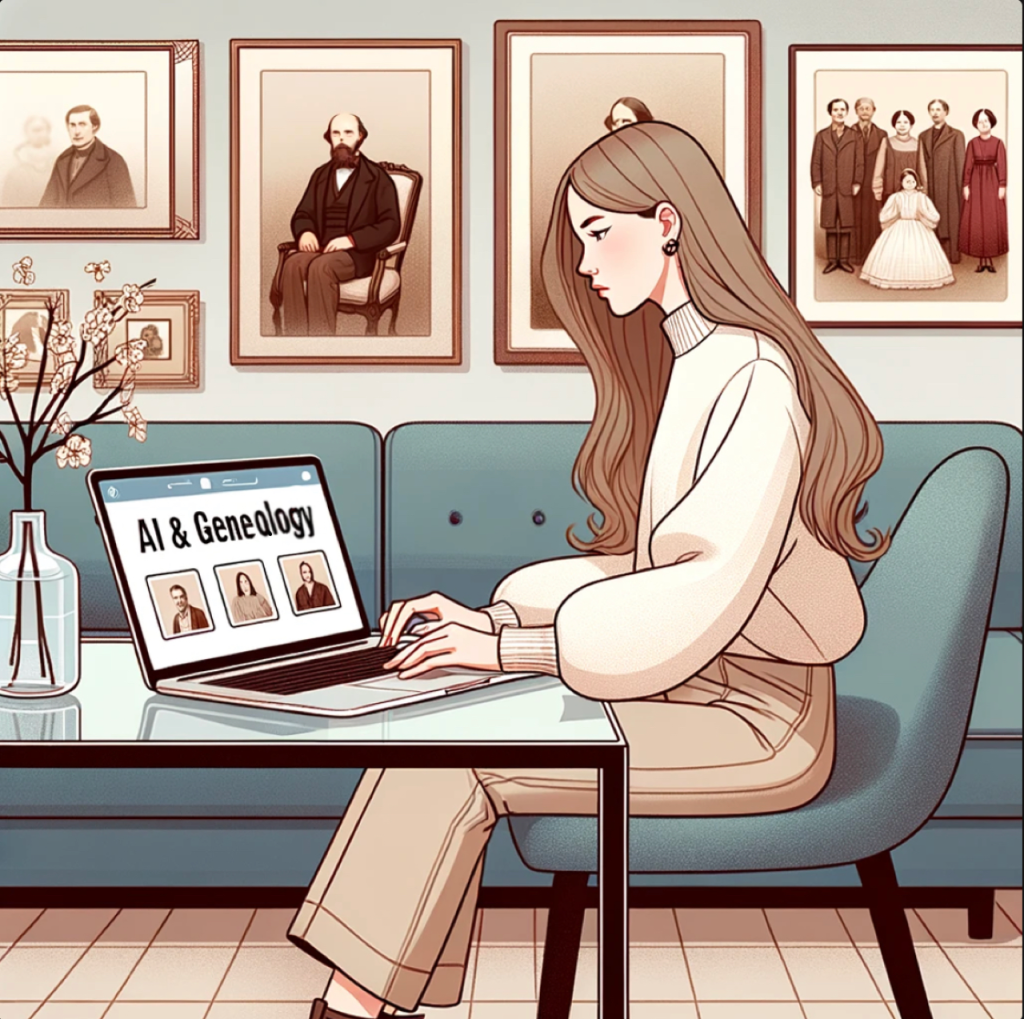
So, what have I experimented with so far, how has it been helpful, and what concerns have arisen?
March 2023
I first tried the free version of ChatGPT in March. At that point, I was trying to use it more like Google; I wasn’t impressed. At the time, I didn’t realize that it wasn’t interacting with the live internet so was frustrated that it couldn’t help with more recent events.
May 2023
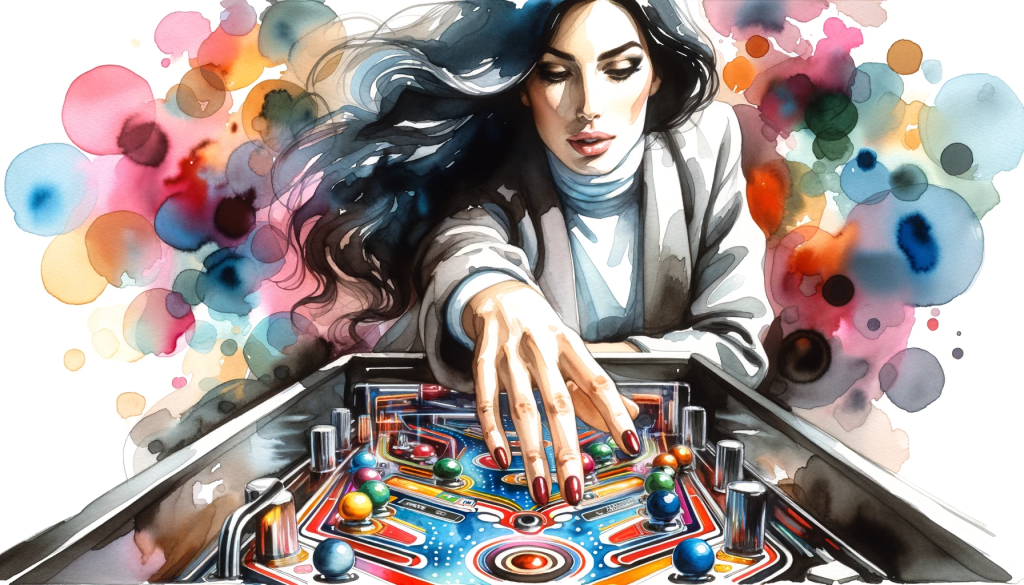
By May I had watched a few YouTube videos where they showed how to use it to make plans to learn something. So, besides using it like Google, I also asked for how to learn Spanish at home, learn to be a better artist, and tips for improving my pinball game. Asking for ideas on how to learn something is one of ChatGPT’s strengths! For example, it suggested I do the following (with greater detail) to be a better pinball player:
- Practice
- Focus on ball control
- Study the game
- Develop a consistent technique
- Stay calm & focused
- Watch and learn from other players
- Join a pinball league or tournament
Note that even though AI has great tips about how to play pinball better, it doesn’t understand how you physically play pinball! No matter how I changed the prompt, it gets the
I also used it to learn more about a specific group of people I was working with on a project that was beyond what a simple Google search could do.
June 2023
In June I started asking more questions like “Explain X-DNA inheritance” and “If two people share 3505 cM of DNA, how are they related?” It did really well on the X-DNA question, but “failed” on the relatedness question. The Shared cM Project, where most genealogists turn to find genetic relationship probabilities based on a shared amount of DNA, shows that two people who share 3505 cM have a 100% probability of being parent/child. ChatGPT also suggested they could be full siblings, half-siblings, or grandparent/grandchild.
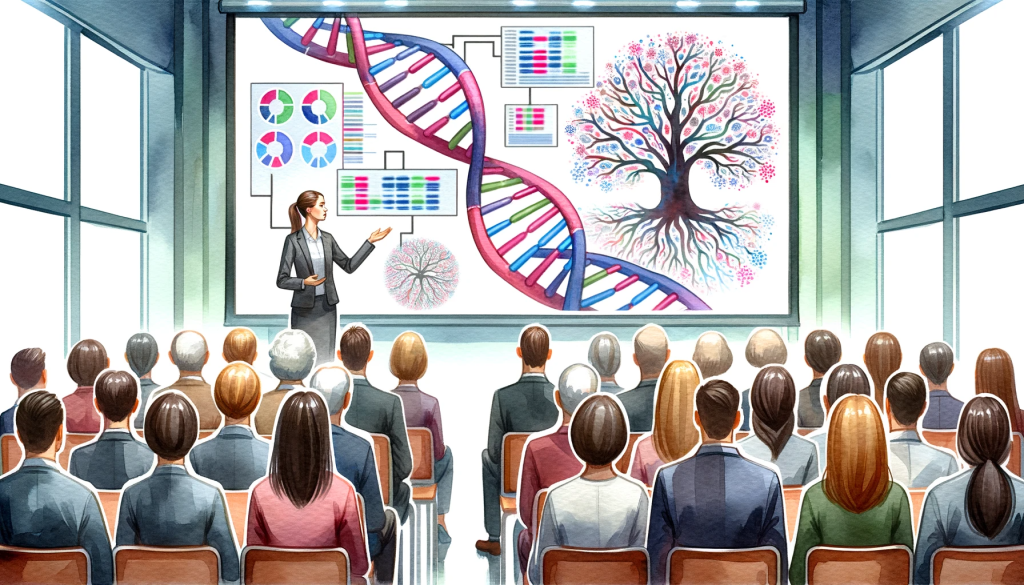
I also first started using it to help me with my genetic genealogy presentations asking it to help me write titles and descriptions of my talks.
July 2023
In July, I started trying to find an app I could use to create digital art. I was trying to use a program called Journey for free, but it was always closed to new, non-paying members. Since I also do digital art on my iPad using Procreate, I asked it to generate prompts for my art.
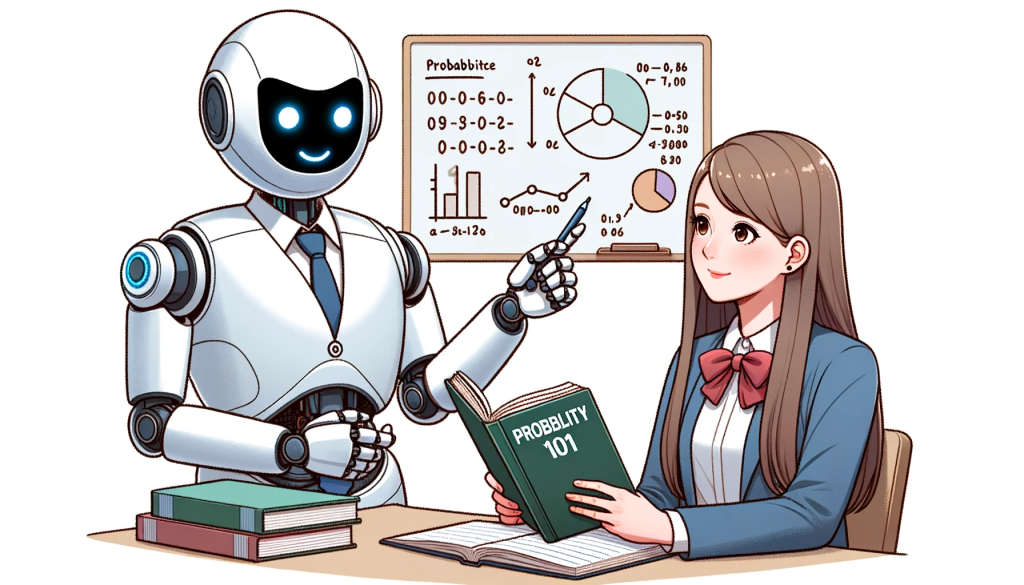
I also used it to help with the probability of two events happening focused on genetic genealogy. I learned that it not only answers your mathematical questions, it shows you HOW to calculate those answers.
(Notice that the AI generated illustration, which I created today, misspells the word “probability.” This is something I’ve noticed on most of my AI illustration generations! I am sure it’ll get better with time.)
August 2023
Why did the genealogist bring a ladder to the family reunion?
He wanted to see if there were any nuts in the tree.
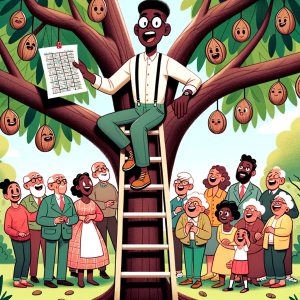
This is the first joke ChatGPT suggested when I asked, in August, for it to “write a joke about genealogy.” The jokes weren’t very good, and I’m also a terrible joke teller so it was probably a bad idea anyway. It is fun to see what AI can create, though I’m sure this is not an original joke.
I also continued to expand how I used ChatGPT for my talks by asking it to brainstorm things to include in a specific talk. This technique helps to save time! Of course, I am not using its suggestions exactly, but it helps to get me started.
I also used ChatGPT during a non-profit meeting to brainstorm fundraising event ideas! This was an amazingly quick way to get a lot of great ideas. And we were able to tweak them to customize them with our theme.
September 2023
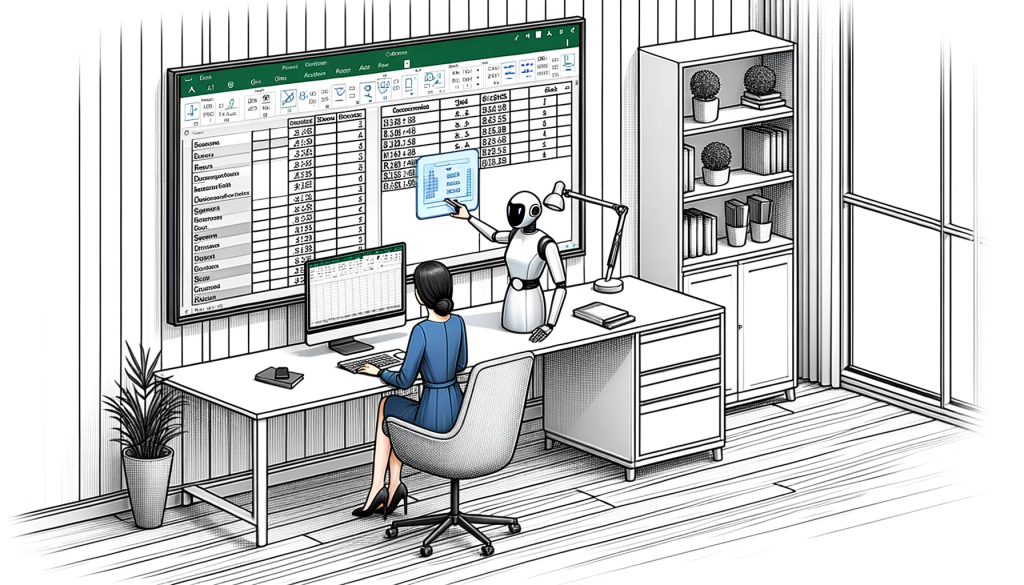
In September, I was struggling with getting the page numbers on a handout in Word as I wanted them. I asked ChatGPT, and it gave me the instructions I needed to quickly fix them! I also asked it to help me come up with an Excel formula to help in a tournament where the calculations were complex. Realizing I could turn to AI for help with Word and Excel was a great help for me!
October 2023
In October 2023, I went to the East Coast Genetic Genealogy Conference where Blaine Bettinger used AI generated illustrations in his presentation. This was a game changer for me!
At the conference, I also met Stephen Little who was starting a 4-week course with NGS titled “Empowering Genealogists with Artificial Intelligence.” (We started yesterday and I’m excited about this course!)
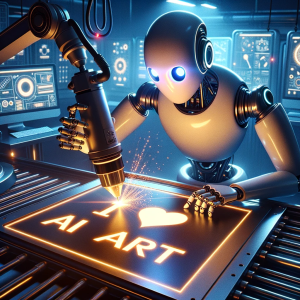
When I got home from the conference, I discovered Carole McCulloch of “AI and the Genealogist” through a free video she has on YouTube titled “ChatGPT-4 and DALL-E3: an AI Genealogist Tip.” This is how I really got started generating art illustrations with AI! And it was at this point that I switched to a $20/month paid subscription of ChatGPT to access DALL-E 3.
The Future of AI and Genealogy
I have embraced AI’s power to help me solve problems, acquire new skills and knowledge, brainstorm, edit my written words, and generate illustrations. Just as the ability to use our DNA has transformed genealogy, I believe AI will also transform our field by helping us create quick and accurate transcriptions, abstractions, and translations; process and analyze large amounts of data; and much more. Of course we need to educate oursleves on how to use AI ethically and responsibly, especially in this field of genealogy where the accuracy of the information we share is crucial. Missteps in this area could lead to the spreading of errors, inaccurate family histories, and misleading future researchers.
Personally, I look forward to seeing how AI continues to transform our field as we gather, evaluate, and share our family stories. Although some are uncertain about this new technology, I am excited about harnessing this new power to both enhance our existing practices as well as unlock new tools to help us perform tasks more quickly and accurately. Thankfully, our genealogy community is actively discussing, researching, and even educating our members as to how we can use this tool ethically.
Like many others, I believe the world is entering a new era. As we continue to explore and integrate AI into our work, the possibilities for innovation and discovery are limited only by the advancements in these tools and our own imaginations. Let’s embrace the future as we explore how AI can enhance the field of genealogy.
Your Turn
Have you tried AI? If so, what platform have you used? And what successes or failures have you had while using AI? How do you think it will affect your personal and work life in the future?